A story of two St Ives: ‘It is cursed and confused by its raging beauty’ |
Cornwall is two places really, and it is more pronounced in St Ives than anywhere. When I arrive in late morning, I find a grey Ferrari parked in the loading bay by the Talay Thai restaurant. It is parked at an offensive angle, indicating carelessness. That is the first Cornwall. Cleaners walk past it with vast sacks of laundry, and that is the second. It is changeover day: they have six hours to transform an Airbnb from one guest’s dreamscape to another’s. Most Cornish stories are brought in from out of duchy: travelling myths. The lighthouse in Virginia Woolf’s novel – the Godrevy – is on the horizon; Woolf was born in Kensington. Daphne du Maurier was born in Camden, but moved to Cornwall and wrote Rebecca, which is a novel about a house.
St Ives used to be a fishing village. Now it is a tourist resort around a waning fishing village. The old town – “Downalong” – is a cobbled hotel filled with Airbnbs and second homes. In winter you will see barely a light on. Locals live up the hill in the Penbeagle estate and look down on what they used to have.
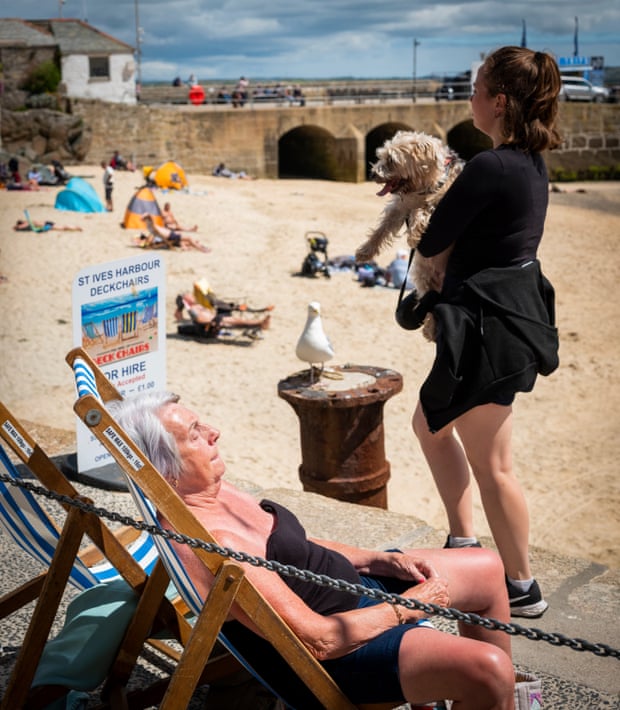
Visitors wander slowly along the front licking ice-creams. Like all participants in leisure, they are barely capable of speech. The sea is far away for now: the harbour looks like a bath whose plug has been pulled out.
The herring gulls are the most attentive creatures here. They are exceptional for their savagery, even for Cornwall, which must be some kind of metaphor. They watch carefully as Trevor the binman empties the bin and throws the full bag into a cart on wheels. The rubbish is collected five times a day to deter the gulls from attacking people and is hidden in a yard behind the Sloop Inn (1312), which is already busy with a local stag night drinking competitively, as stag nights do.
“Popular little village,” Trevor says. “I’m trying to stop the seagulls. Fighting a losing battle. They’re getting wise.” That was Du Maurier’s fear, too. She put it in her short story The Birds, though they stopped eating people’s food, and started eating people instead.
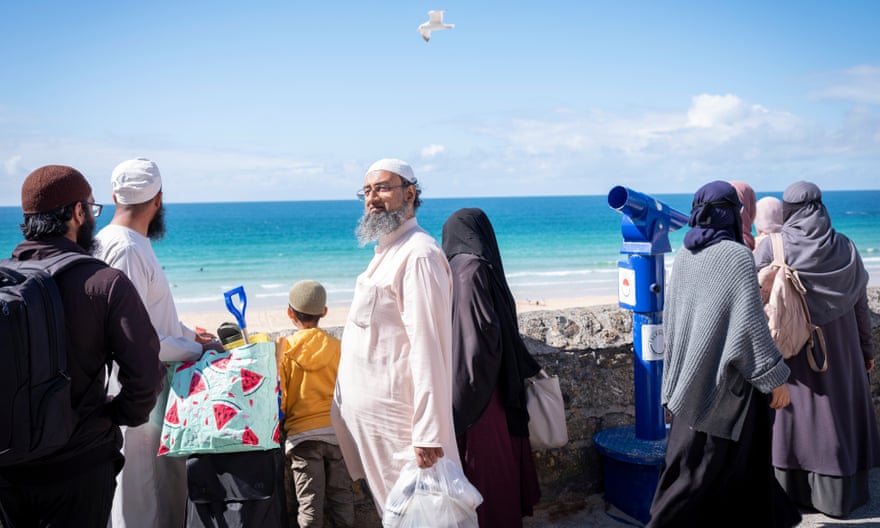
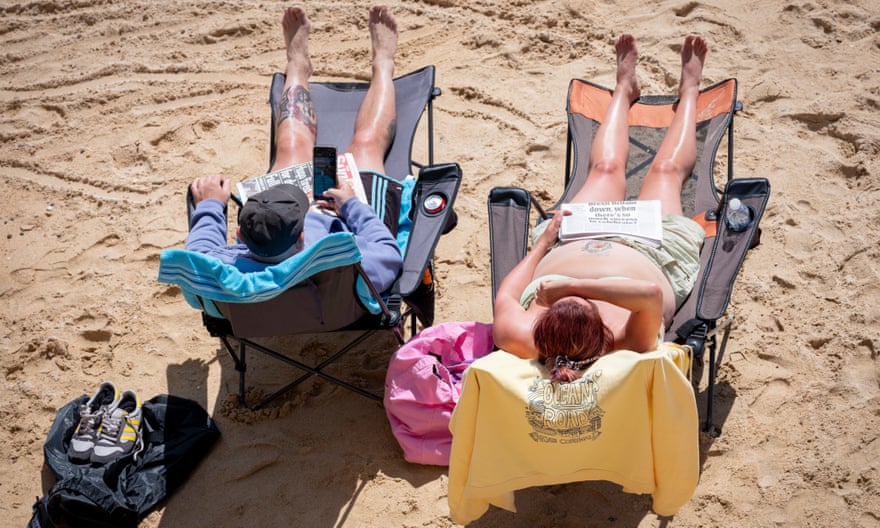
I meet Rachel and her dogs Bibi and Beau. She has just arrived, but she isn’t staying; something here shames her. “You feel you have come somewhere made especially for the tourists,” she says. “I’m trying to find authenticity. We’re participating in the problem. It’s exactly what I thought it would be.”
Sign up to our Inside Saturday newsletter for an exclusive behind-the-scenes look at the making of the magazine’s biggest features, as well as a curated list of our weekly highlights
I find two fishermen on the quay. One is throwing ice from a lock-up into the back of his truck. He doesn’t want to talk: he’s busy. He relents and says he is collecting the ice to cool beers at a party. I ask about the fishing. “It’s a joke,” says his friend. “It’s pleasure boats taking over. A bunch of … ” he stops. “It’s all right, we’re making wages.” But the pleasure boats, he says, “spook the fish. They have big engines. It’s costing us a fortune. There’s nothing you can do.” They fish early when the tide allows it, but the visitors still complain about the noise of the vans on the quay.
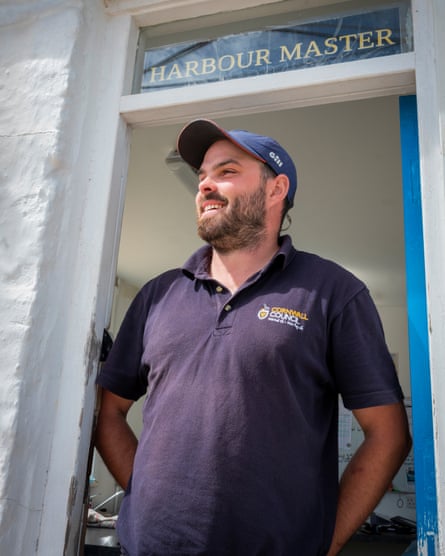
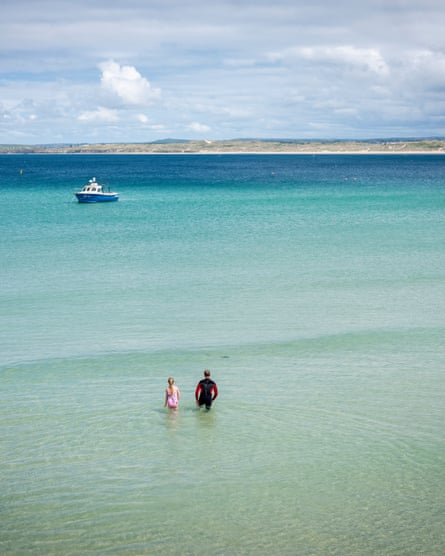
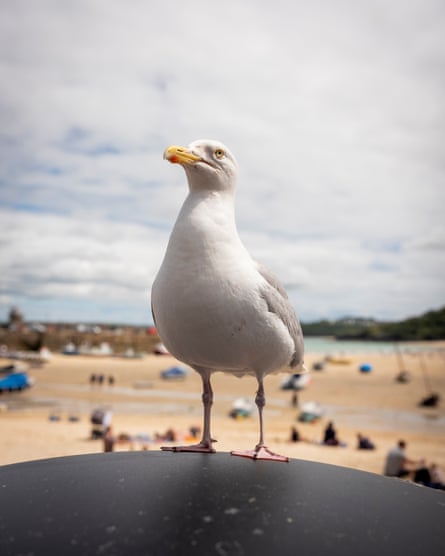
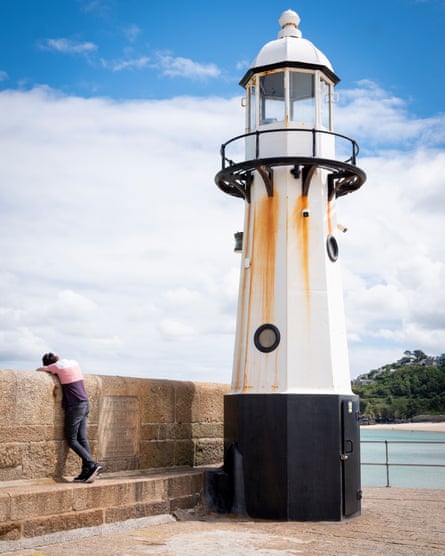
I meet the harbour master in his office on the quay. He is dressed neatly; he charms. When a visitor comes to ask when the tide is coming in, he consults the yellow tide book before him. Then a man comes to ask for change, but he has none. It isn’t busy today, he says: fishermen like to take weekends off. The sailing club is out, he says, waving over the pier at distant boats; a sand eel boat and two boats looking for crabs, lobsters and crayfish went out this morning. A Welsh yacht is staying overnight. There are 30 boats fishing out of St Ives now and 18 pleasure craft: the two Cornwalls at sea. “We had a dolphin a few weeks ago,” he says. “He was called Dave.” The boatmen give visiting sea life common names, as if they are their friends. Dave the Dolphin lived in the harbour, but he moved on. “Who knows where Dave is now? Or who he is with?”
After lunch the rain comes; it feels, as ever in Cornwall after sunlight, like a surprise. A woman comes in for shelter. She looks tired, almost anguished. When she was a child she lived by the harbour, then moved up to Penbeagle. “I’ve read about colonialism, and that’s what happened to us,” she says. “These people” – she indicates Downalong behind us – “were the poorest of the poor – now they are rich. The people of Penbeagle,” she says, “it’s almost like we don’t exist. The people who come here don’t know about it. Why is somebody’s holiday worth the death of the…
Read More: A story of two St Ives: ‘It is cursed and confused by its raging beauty’ |

